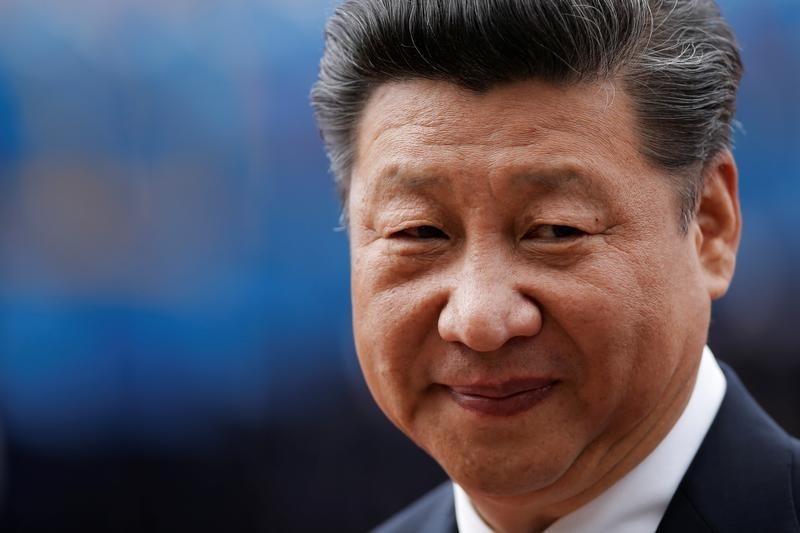BofA warns Fed risks policy mistake with early rate cuts
By Geoffrey Smith
Investing.com -- Chinese President Xi Jinping arrived in Moscow on Monday for three days of talks with Russian leaders, looking to break the deadlock in a war in Ukraine that is weighing heavily on the global economy.
Xi's government had proposed a 12-point peace plan for Ukraine in February as the war entered its second year, but had received a cool response from both sides, and had been rejected flat out by Ukraine's allies in the U.S. and Europe.
Welcoming Xi at the Kremlin, Russian President Vladimir Putin was quoted by newswires as saying that "We have studiously acquainted ourselves with your proposals for regulating the acute crisis in Ukraine," adding that: "we know that you approach it from the principles of justice and the observance of the main positions of international law."
Xi's visit comes at a crucial time for Putin, who fell foul of international lawyers last week when the UN-backed International Criminal Court in the Hague charged him with war crimes, specifically with regard to the deportation of Ukrainian adults and children to Russia from the areas of Ukraine now occupied by Russian troops.
"The chances of Putin getting arrested or tried for these offences are slim," analysts at the Chatham House think-tank said in a research post, given that Russia is not a party to the act that set up the ICC, and that there is no possibility to try him in absentia.
Analysts expect the meeting to result in renewed vows of closeness from two countries who have declared a "no limits partnership" and which share a common interest in challenging U.S. political leadership in global affairs. China has increased its purchases of Russian oil over the last year, providing essential support to an economy that relies largely on oil and gas exports. Chinese manufacturers also moved into the vacuum created by the withdrawal of their European rivals as the EU imposed sanctions on Russia.
Despite the enhanced economic ties, Xi is widely expected to keep China out of the conflict, and to shy away from openly delivering arms to Russia, mindful that the U.S. may sharpen its own economic measures against Chinese companies in retaliation.
Both sides in the conflict badly need support from outside to sustain their war effort, having largely depleted pre-war stocks of weapons systems.
Earlier Monday, EU defense ministers adopted a proposal to deliver 1 million artillery shells to Ukraine.
